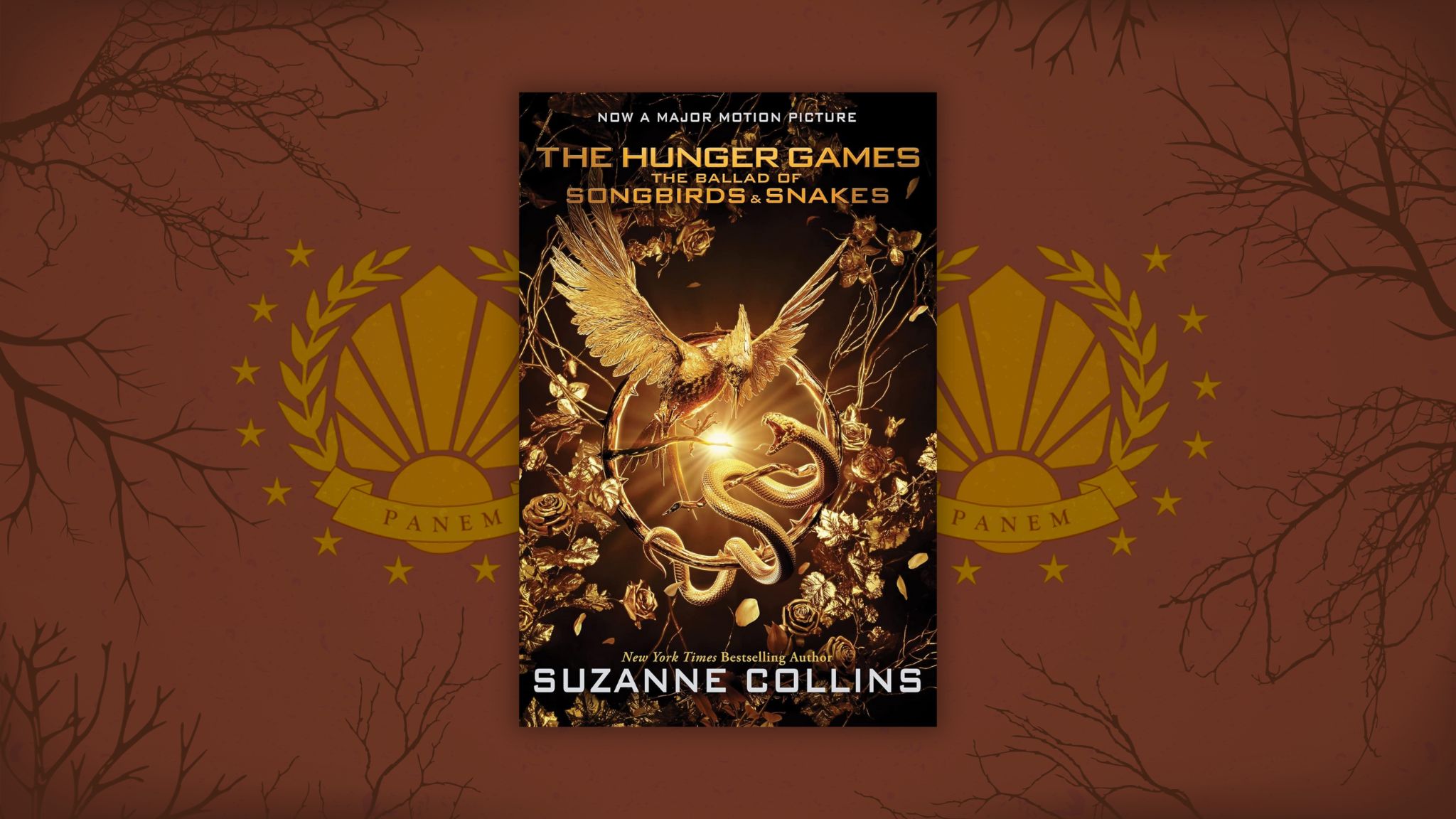In 2019, Suzanne Collins, author of the blockbuster trilogy, The Hunger Games, picked up the phone and called Director Frances Lawrence to tell them “Surprise! I’ve written another book.” This shocked him and the producers because after the Mockingjay films Collins had affirmed “there were no plans for any other books.” Like the eternal chaos in Panem, things change. Rachel Zegler, hot off her success as Maria in West Side Story, leads a sparkling cast of Tom Blyth, Peter Dinklage and Viola Davis, as musical Lucy Gray Baird in this slow burning, big screen version of The Ballad of Songbirds and Snakes.
The Mentor and the Musician
In the original trilogy, The Hunger Games, Panem President Coriolanus Snow (Donald Sutherland) is presented as a calculating, ruthless dictator bent on destroying the Mockingjay heroine, Katniss Everdeen. In Collin’s The Ballad of Songbirds and Snakes, we are introduced to an angst-ridden teenage Snow, forty years before the trilogy. He’s fighting for survival in a post-Dark Days republic where the Capitol has squashed the rebellion in the fourteen districts leaving him, his cousin Tigris and his grandmother close to the point of starvation. His family’s wealth and prestige are relics of the past, and Snow wonders how will he be able to afford the University tuition next year.
Coriolanus is preparing to graduate from the prestigious Panem Academy, when he is selected as a mentor for Lucy Gray Baird, a tribute from District 12 in the Tenth Hunger Games. Despite Lucy’s lack of physical strength or training, she is gifted with charisma, strength and intellect. She is a Covey, a wandering minstrel, who claims no affiliation with any district, but has been seen selected during the Reaping. Coriolanus is immediately charmed by her unique personality, and falls in love with this young woman who is about to meet her death in the arena. Snow romanticizes that the pair are kindred spirits and star-crossed lovers as they battle the other district’s tributes, his fellow mentors, the malicious high school Dean Highbottom and the chaotic war-mongering Master Gamemaker, Dr. Gaul.
Ideals Clash With Ambitions
During the first two parts of the novel, and as devastation repeatedly occurs inside and outside of the Hunger Games arena, readers find themselves questioning who are the tributes and who are the mentors? Also, what are Coriolanus true motives in assisting Lucy Gray — is it because “she’s his girl,” or he desires the recognition and scholarship offered to the winning mentor? And to what lengths will Snow go to achieve either prize?
Family and friendship mean a great deal to Coriolanus, and his loving and generous relationships with a weak, wealthy student, Sejanus Plinth, his cousin Tigris, grandmother and his childhood pal, Clemensia Dovecote, reveal the flicker of goodness that is buried within the heart of this budding autocrat. However, as the story develops readers, like Snow, will wrestle with where his true loyalties ultimately lie.
Once again, Collins builds a world shattered by war, poverty and government corruption against the backdrop of the cost of war on society and individuals. As Dr. Gall asks Coriolanus, what would the world be without rules? Clearly, someone must be in charge, and the young Snow imagines himself as that leader, the future President of Panem.
Humble Origins
The Ballad of Songbirds and Snakes is a requiem of the slow, steady corruption of Coriolanus Snow where his naiveté melts like winter’s snow in the Capitol. Through Tom Blyth’s portrayal of Snow, it becomes clear that his future authoritative convictions are the product of his complicated relationships, and the loss, deprivation and trauma of his youth. However, in this nature-versus-nurture, law-versus-chaos and teen-versus-teen tale, Coriolanus Snow always seems to land up on top.
The film strives to distinguish itself from the original trilogy, featuring a pared-down version of the Tenth Hunger Games. There are neither the fancy elevators shooting the tributes up into the magnificent arena, nor the slick body armor or technology designed to save the tributes. Instead, the gladiators are dragged out at gunpoint into the rubble of a decrepit facility to survive on their wits. However, the sophisticated 1940s and 1950s feel of the costumes and sets does leaves us wondering about what happens to Lucy Gray in the end. And how the visions on screen reflect our contemporary society.





